Make Women Count – Civic Data Platform for Mississippi Women
Overview
Make Women Count is a civic data storytelling project developed in partnership with the Mississippi Low-Income Child Care Initiative (MLICCI). The goal was to create a tool that supports MLICCI's advocacy for low-income women — particularly Black women — by providing a platform that integrates both quantitative data and qualitative lived experiences.
We sought to build a Well-Being Index that was truly intersectional, recognizing that race and gender must be considered together to understand systemic disparities. The platform was designed to empower community organizations and advocates, providing accessible data and personal stories to inform legislators and support policy change.
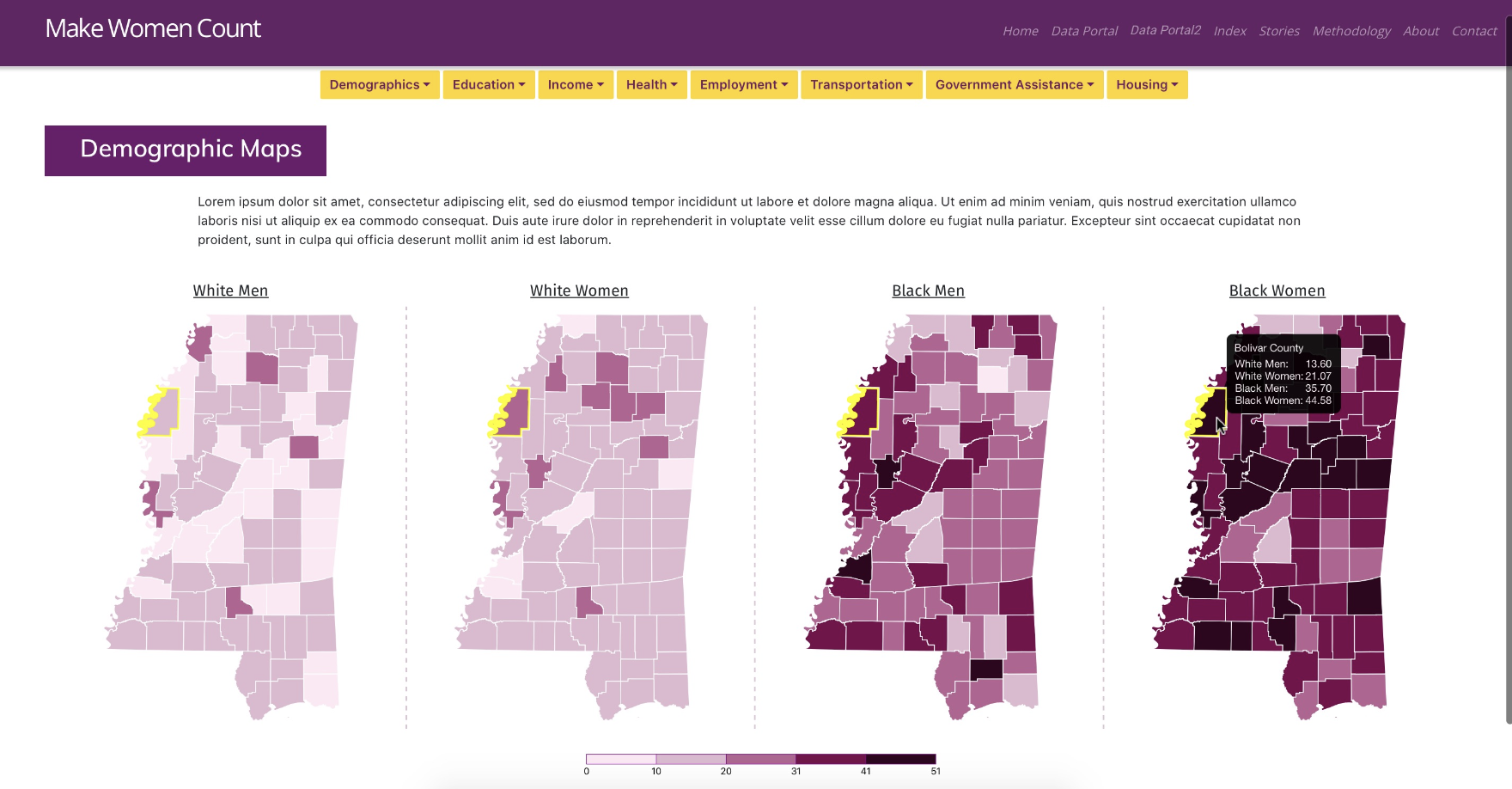
Comparative demographic maps showing racial disparities across Mississippi counties
My Role
- Led the full project lifecycle, from design and development to research coordination and stakeholder engagement.
- Conducted focus groups with community members and organizers to inform user experience and feature prioritization.
- Created and refined the survey instruments and interview protocols used to collect qualitative narratives.
- Designed and built the interactive web platform using React and D3.js, emphasizing accessibility and clarity.
- Cleaned and prepared complex datasets from the Census, ACS, and Mississippi state sources using Python and R.
- Trained and managed a team of student research assistants to support data preparation and content development.
- Served as the main project manager, coordinating across technical, research, and community engagement efforts.
My Approach
Building Make Women Count was grounded in community-centered design principles:
- Focus Groups: Conducted early focus groups with MLICCI staff and community members to prototype navigation structures and data visualization needs.
- Intersectional Data Framework: Designed custom data views that allowed users to easily toggle between race, gender, and race+gender combinations — highlighting how experiences differ for Black women compared to white women and others.
- Qualitative + Quantitative Integration: Developed side-by-side storytelling components so that lived experiences were not flattened into statistics but remained central to the narrative.
- Accessibility Focus: Prioritized a clean, minimal design with clear navigation buttons and responsive design to ensure usability by advocates presenting information on the move.
- Heavy Data Cleaning: Merged and cleaned disparate sources from Census data, ACS datasets, and state-level records to create unified, user-friendly tables.
Data Sources
- U.S. Census Bureau Data
- American Community Survey (ACS)
- In-person interviews conducted in Mississippi
- Mississippi state agency websites
Tools and Technologies
Impact
Make Women Count is intended to:
- Provide MLICCI and other advocates with a tool to support legislative advocacy, combining human stories and hard data.
- Model a more intersectional approach to well-being metrics, setting a precedent for future civic data platforms.
- Build research and technical capacity by involving student researchers and community voices directly in the creation process.
- Strengthen narrative-driven policy advocacy by ensuring that the complexity of women's lived experiences is not lost in aggregate statistics.
Project Gallery
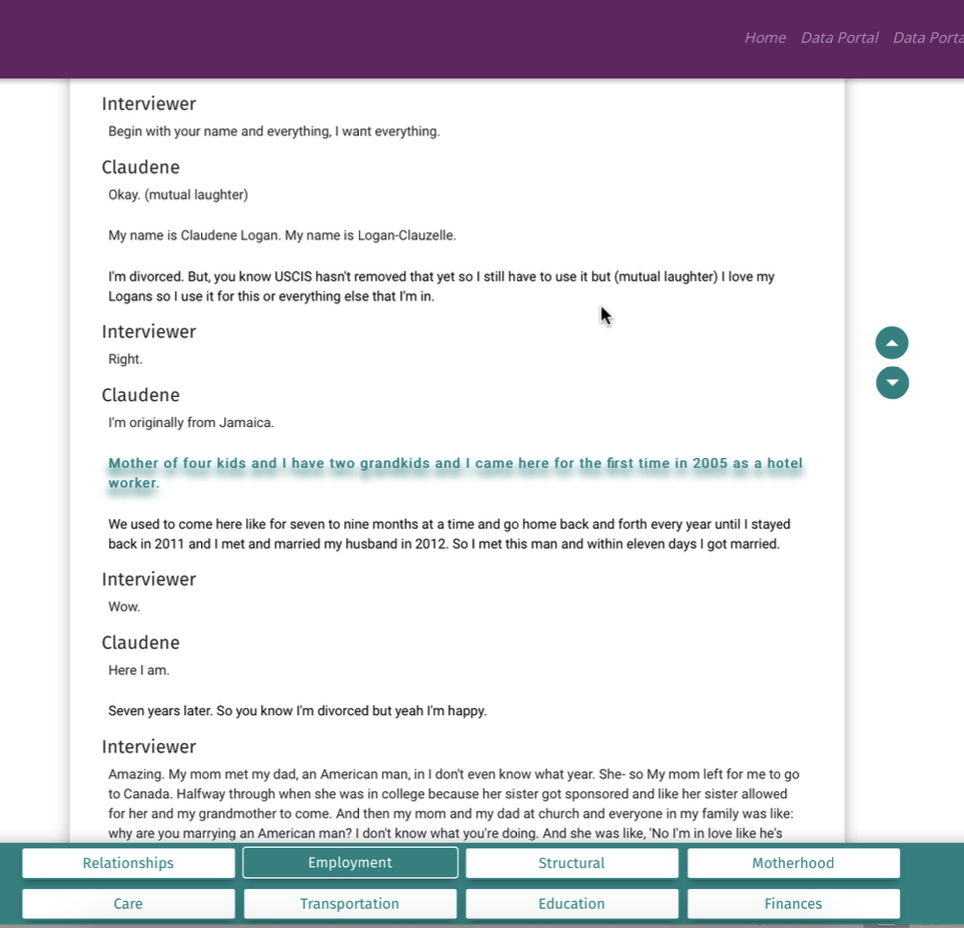
Interface for exploring personal stories with thematic tagging and navigation
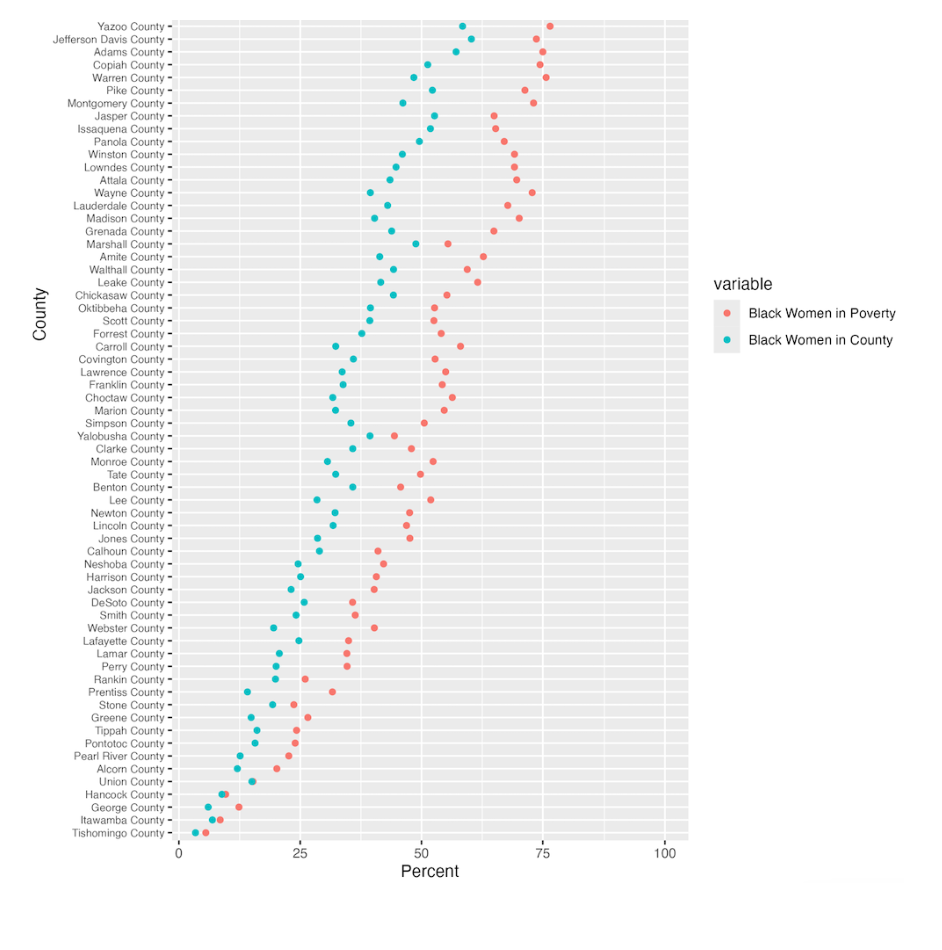
Comparative visualization showing poverty rates between demographic groups
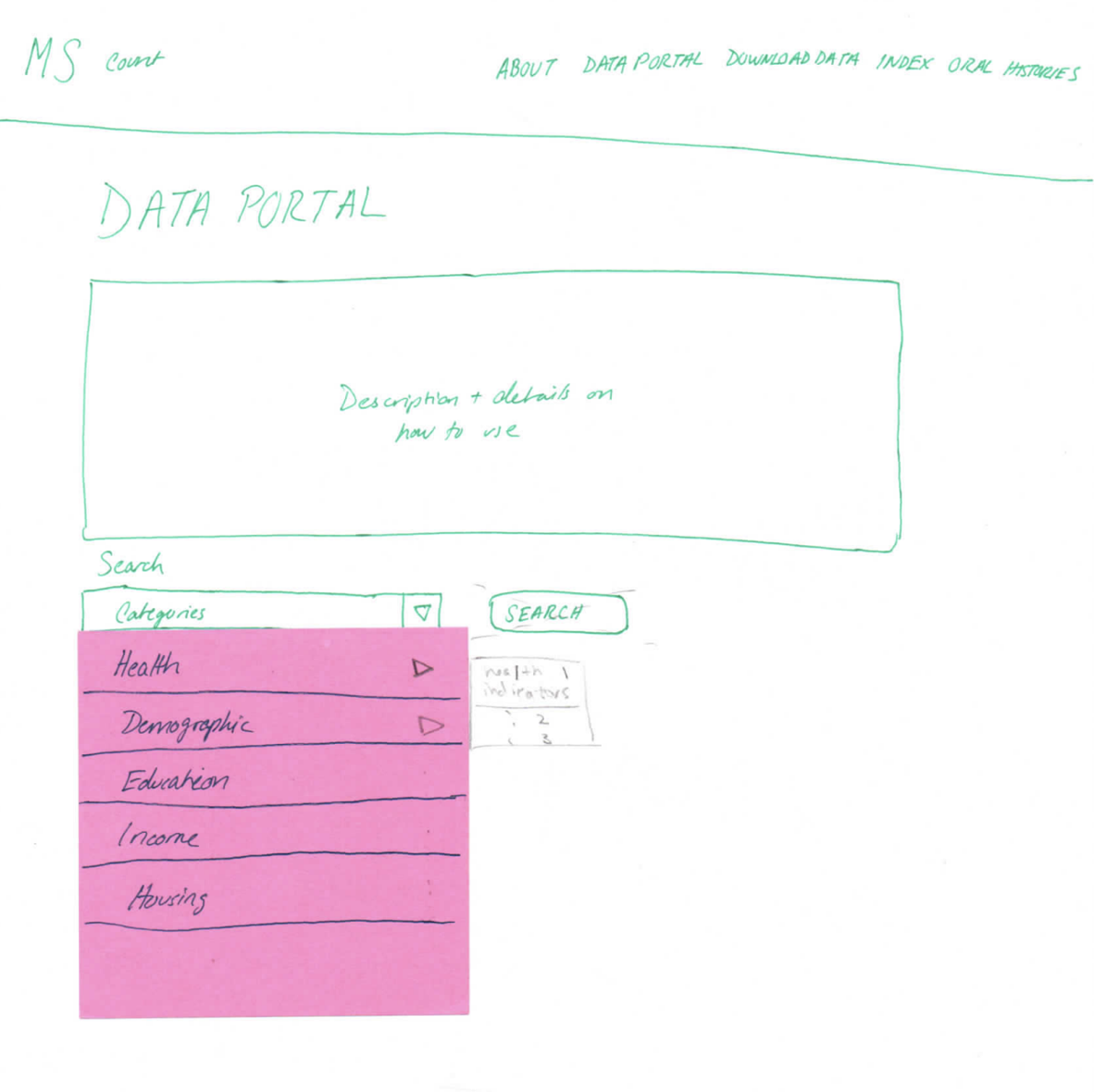
Early sketches of the site
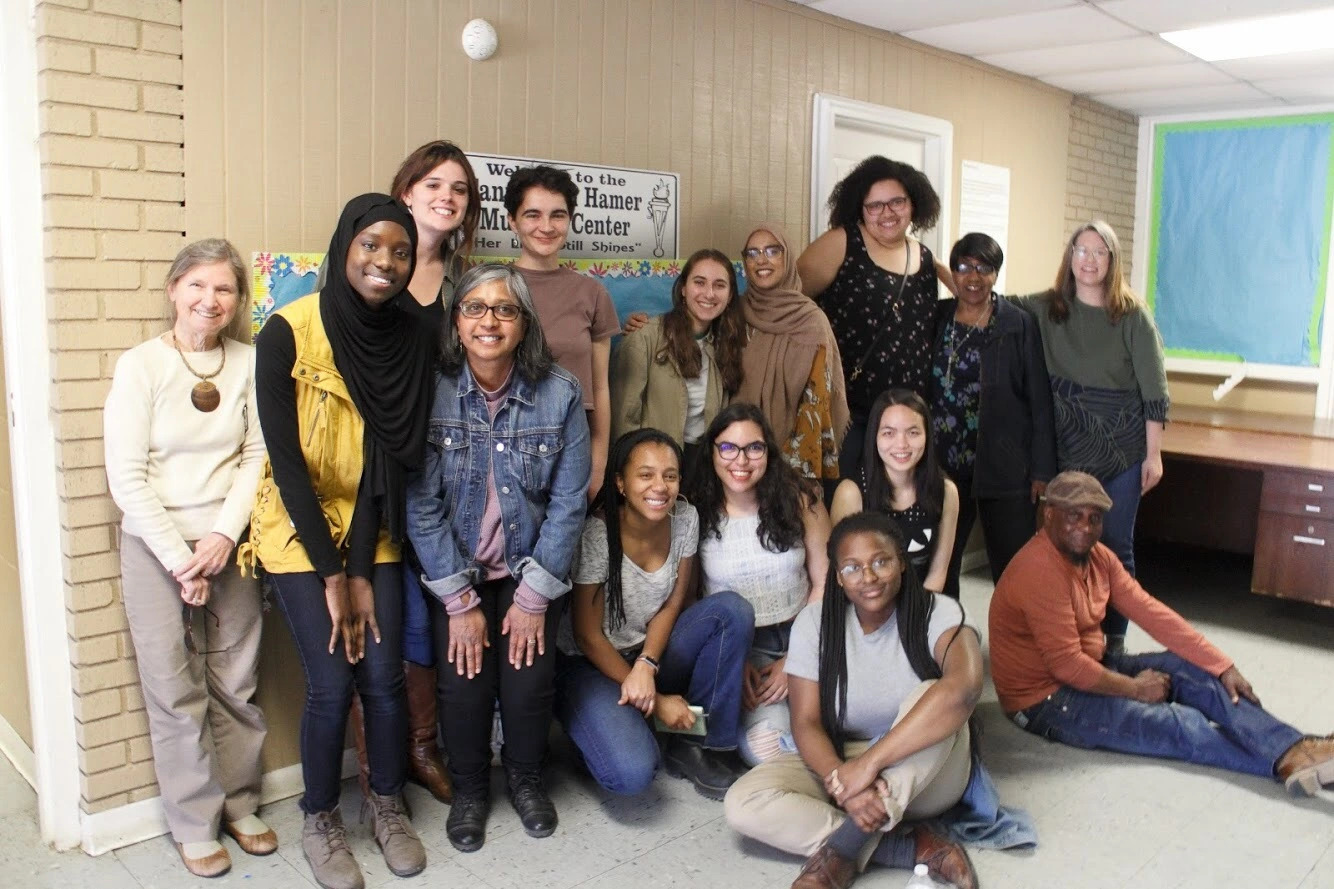
Photo of me and students in Mississippi with community members